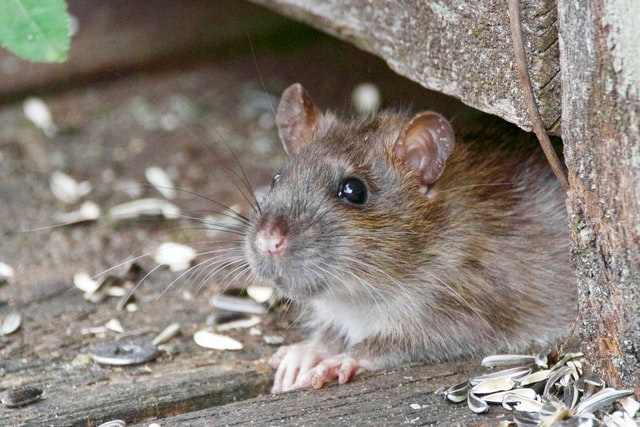Rodents are a mess that any homeowner needs to avoid. They can not only contaminate your food, but can also chew up electrical wirings, cause structural damage, and even spread diseases. Around one-third of the homeowners in the United States are facing problems related to rats and mice.
Most rodents prefer a cozy nesting place that is near to an abundant source of food. This makes kitchens, pantries, and dark areas like garages and basements ideal places for nesting. With winter around the corner, the chances of rodents seeking warmth and shelter in your home are higher.
While it’s not easy to prevent them from getting inside, the trick is to identify the problem areas and eliminate the conditions that rodents need. Here are six effective ways that will help you to keep a check on the infestations.
1. Inspect the Premises
The first step will be to eliminate any rodent habitats around your home. Grasses and shrubs can be great for landscaping, but they can become potential rodent shelters. Besides, ivy on the walls can act as ladders for the rodents to reach the upper windows. Trim away the dense foliage and reduce shadowy areas around the house. Keep at least a six foot gap between any tree branch and the house. If there are bird feeders, keep them as far away from the house as possible.
The other important step is to reduce any clutter in the house and get rid of the junk. Clean the basement and other storage areas as much as possible. Any source of excess moisture like clogged drains or leaking pipes should also be eliminated as they can become breeding grounds for rodents.
2. Sealing
If you notice any holes or cracks that lead in the house, seal them immediately. Since mice can squeeze in through holes that are less than an inch in diameter, check the foundation and joints around doors and windows for cracks. Block all such cracks with concrete, caulk, steel wool, or sheet metal. Gaps below doors can be sealed with vinyl or rubber seals. All vents and chimneys should be covered by wire mesh.
In case you have a raised deck, chances are that rodents will seek entry from below. Placing a metal screen around the perimeter can stop rodent entry from underneath. Rodents love the warmth of insulation. So, check for any exposed insulation around the house and repair it. Make sure you keep all openings like the garage doors, basement windows, and sliding patio doors closed overnight.
3. Proper Food storage
Storing food in the right manner is extremely important as rodents are attracted to the smell of food. Without a steady source of food, rodents will have no reason to seek entry into your home.
All dry food and pet food should be stored in plastic, metal, or glass containers. Avoid storing food items in paper cartons as these are not rodent-proof. Don’t store food items on the floor and use the shelves and cupboards.
4. Sanitize
Rodents also feed on food and garbage disposed of by humans. Make sure to sanitize both the outside and inside of your home to keep it clean. Clean all spilled food and crumbs from the countertops and floor. Keep spaces under the stoves and refrigerators clean. Remove any uneaten pet foods from the open. Garbage cans should be kept clear and remain covered.
Since rodents also look for a water source, don’t leave any filled glasses or buckets out overnight. Fill up the holes or low spots in the yard and to prevent water accumulation. Keep the yard clean of any fruits or vegetables that might have fallen from trees.
5. Use Traps and Baits
Using live traps is a humane way to trap rodents and release them later. Live traps with a chamber and a spring-loaded door are effective indoors. Avoid using sticky traps as they are not humane. Other options are repellents that use organic oils can be used inside and outside of your home. Peppermint oil is a good example of such a repellent.
If you don’t mind killing rodents, spring traps, electronic traps, and bait stations are good options. Make sure not to place any poison bets outdoors as pets and squirrels may eat them. Always follow the safety instructions while using any rodent control product and clean up properly after disposing of a dead rodent.
6. Adopt a Pet
For pet lovers, a young cat, or a terrier can be the perfect solution to check rodent infestations. These pets can effectively capture small animals before they set up a nest and start multiplying. Also, natural predators like barn owls are very effective in controlling the rodent population. You can set up a nesting box to encourage barn owls to nest on your property.
To win the battle against rodents, you need to take the right preventive measures. Even if you spot a single mouse, act quickly before the problem escalates. With the right amount of vigilance and preparation, you can easily prevent your home from becoming a rodent shelter.




